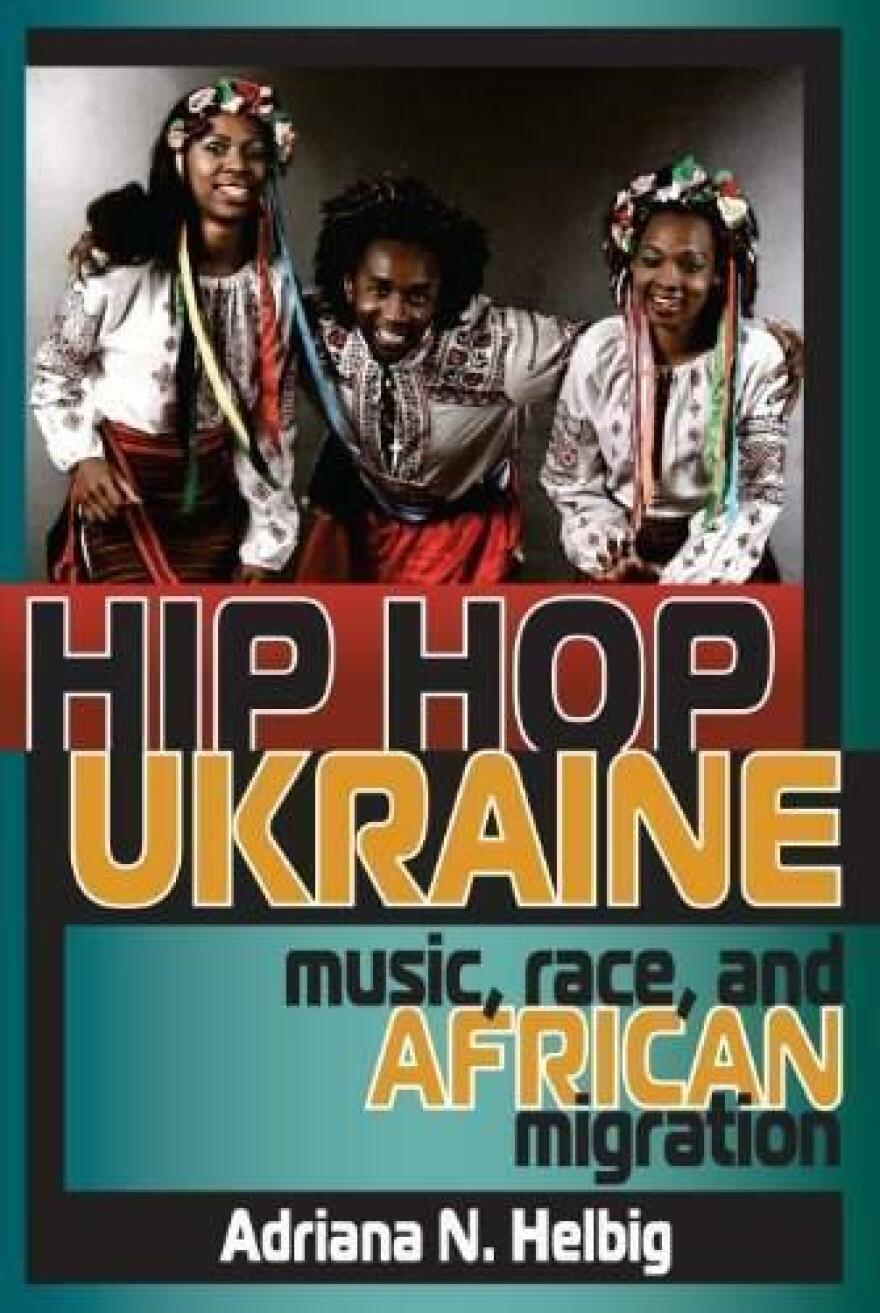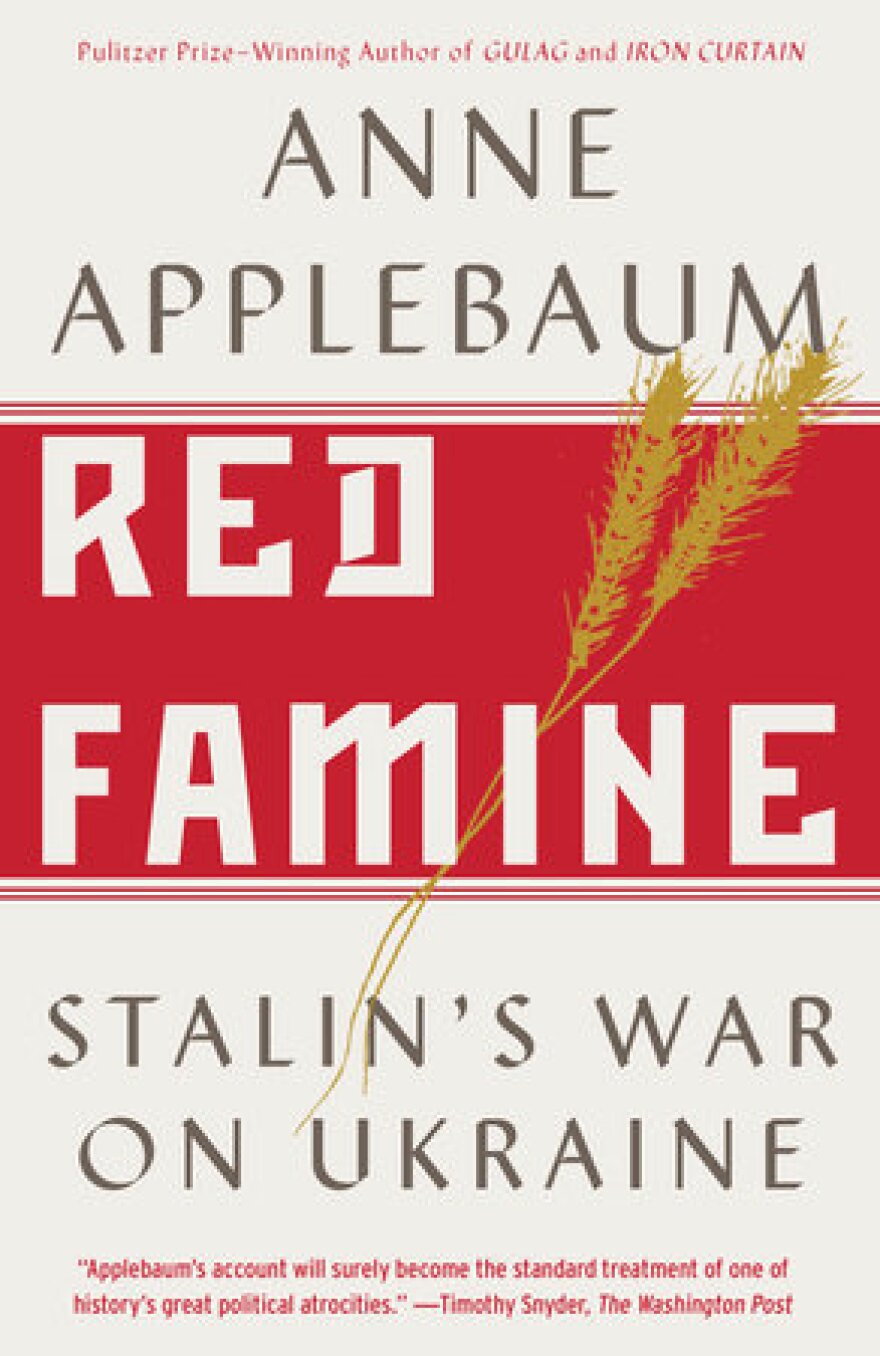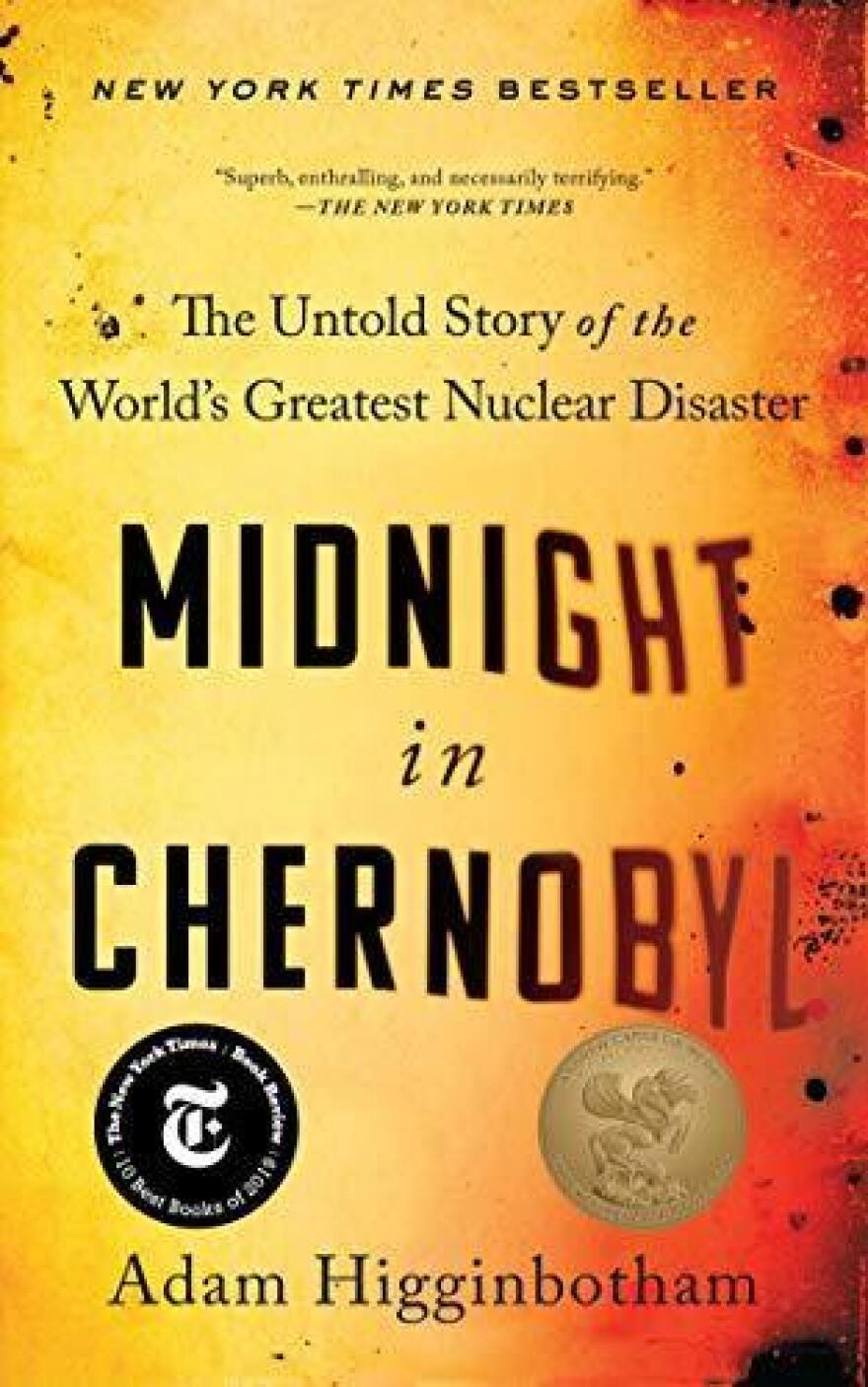Updated March 9, 2022 at 2:00 PM ET
At Kramers, an independent bookstore in Washington, D.C., a lot of books about Russia and Ukraine are sold out. The books started going off the shelves a little more than a week ago as the world braced for a Russian invasion of Ukraine, general manager Llalan Fowler said.
"People have definitely been picking up the Russian books more, like Putin's People and that sort of title," she told NPR. "A lot of the books that are available to us about Ukraine and Russia and their relationship and their history are out of stock already at our supplier."
Many customers come into the shop knowing what they want, she said. But if you're not sure what to reach for first, here's a roundup of books about Ukraine that you might want to dive into.

I Will Die in a Foreign Land, by Kalani Pickhart
Pickhart's debut novel is on Fowler's to-read list. Named among the New York Public Library's best books of 2021, I Will Die in a Foreign Land chronicles what Ukrainian protests looked like in 2013 and 2014, as demonstrators pushed for closer ties with NATO and the European Union.
Pickhart told KJZZ's "The Show" last month that the book has garnered more attention as tensions grew between Russia and Ukraine.
"I think a lot of folks are looking for more information and to sort of understand the conflict in a way that's sort of digestible, essentially just trying to get a sense of the emotional movement of what's going on," Pickhart said.

Lucky Breaks, by Yevgenia Belorusets
A fiction book on Fowler's list, Lucky Breaks, translated from Russian by Eugene Ostashevsky, is a collection of short stories about women living in the aftermath of war in Ukraine. Belorusets, a Ukrainian writer, centers on ordinary lives — a florist, a cosmetologist, a card player, among others.

Hip Hop Ukraine: Music, Race, and African Migration, by Adriana Helbig
Helbig, who chairs the University of Pittsburgh's music department, saw African musicians rapping in Ukrainian during the Orange Revolution in 2004. The revolution followed a presidential election, which many claimed to be corrupt and fraudulent.
Through ethnographic research of music, media and policy, Helbig's book delves into the world of urban music, hip hop parties and dance competitions, along with interracial encounters among African immigrants and the local population.
Jews and Ukrainians in Russia's Literary Borderlands: From the Shtetl Fair to the Petersburg Bookshop, by Amelia Glaser
This book, which covers much of the 19th century and part of the 20th century in Ukraine, explores how those working and writing in Russian, Ukrainian and Yiddish communicated and collaborated at places like commercial markets and fairs. Glaser's study seeks to show that Eastern European literature was much more than just a single language and culture.

Red Famine: Stalin's War on Ukraine, by Anne Applebaum
This book delves into the famine in Ukraine created by Joseph Stalin in the early 1930s, as he sought to destroy the Ukrainian national movement. Nearly 4 million Ukrainians died and many were arrested by Soviet secret police.
On NPR's Fresh Air, Applebaum, a historian and journalist writing about the war in Ukraine for The Atlantic, explained how Vladimir Putin and Stalin saw Ukraine similarly: "as a vector for ideas that could undermine him or threaten him."

Midnight in Chernobyl, by Adam Higginbotham
Higginbotham, a journalist, spent years investigating the aftermath of the Chernobyl nuclear disaster. In his book, he digs into the design flaws and Soviet secrecy that contributed to the explosion, as well as the efforts to contain the damage. He spoke to Fresh Air about the novel in 2019.

Death and the Penguin, by Andrey Kurkov
Set in Kyiv, this 1966 novel tells the story of Viktor, a man who dreams of becoming a novelist, and his pet penguin, Misha.
Viktor finds a job writing obituaries for people who haven't died yet, but his obits seem to become somewhat of a hit list — the people he writes about start to get murdered. Kurkov spoke to Fresh Air about the book in 2012.

Borderland: A Journey Through the History of Ukraine, by Anna Reid
Reid's book takes readers back centuries, including the Mongol invasion in 1240 and the Nazi occupation in the 1900s, leading up to the country's independence in 1991 when the Soviet Union fell. The book chronicles Reid's own experiences as a reporter in Kyiv, as well as the voices of peasants, politicians and the survivors of Stalin's famine and Nazi labor camps.
The Gates of Europe: A History of Ukraine, by Serhii Plokhy
In this 2015 book, Plokhy explores Ukraine's ongoing search for identity and independence. Because the region serves as a strategic connector between the East and West, many groups have historically fought for supremacy on this piece of land, including the Romans, Ottomans, Third Reich and Soviet Union. Plokhy uses these historic conflicts to draw insights on ongoing conflicts and the quest for Ukrainian sovereignty.

Babi Yar: A Document in the Form of a Novel, by A. Anatoli (Kuznetsov)
When the Germans occupied Kyiv in 1941, Kuznetsov was a 12-year-old living in Ukraine's capital city. The teenager witnessed the Nazi war crimes committed against Jews, Roma, Ukrainian nationalists and Soviet prisoners of war. He started documenting what he saw when he was 14, later supplementing his writings with eyewitness and survivor testimonies.
Copyright 2022 NPR. To see more, visit https://www.npr.org.


